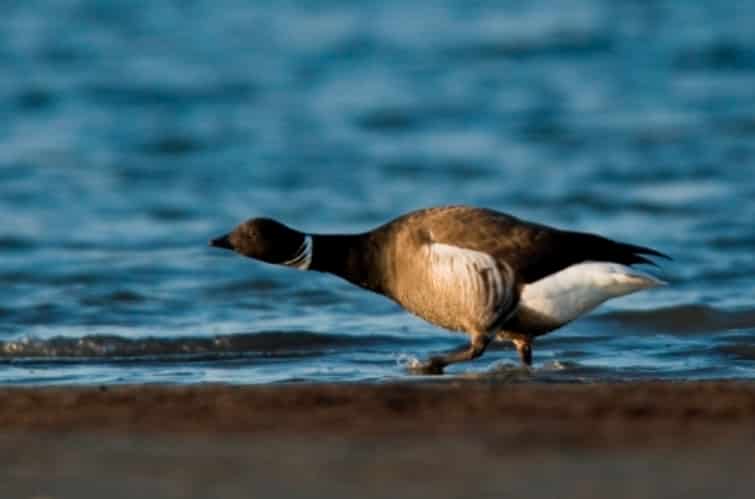Bill balances subsistence needs with habitat restoration
U.S. Sen. Mark Begich introduced legislation today to allow the Secretary of Interior and the Migratory Bird Conservation Commission to periodically adjust the price of Duck Stamps and consider minimal waivers of stamp requirements. The bill will help raise funds for habitat restoration which have significantly decreased over the past two decades.
“The Duck Stamp program has been a tremendous success since it was introduced in 1934, raising some $750 million and preserving over five million acres of waterfowl habitat that benefits hunters across our country,” Begich said. “But the program’s effectiveness has been eaten away by inflation in the 20 years since the price was last set including a tripling of the price of targeted wetlands. This bill allows the Secretary of Interior, working with the Migratory Bird Commission, to consider periodic adjustments in the stamp price so the program continues its good work.”
The Migratory Bird Habitat Investment and Enhancement Act, S. 2156, would allow the Secretary to consult with the Migratory Bird Commission and set Duck Stamp prices every five years. The Commission includes the Secretaries of Interior and Agriculture, EPA Administrator, and two members each from the U.S. Senate and House, currently held by Senators Thad Cochran from Mississippi and Mark Pryor from Arkansas, and Representatives John Dingell from Michigan and Robert Wittman from Virginia. The Fish and Wildlife’s Services’ Chief of the Division of Realty serves as the commission’s secretary.
“Duck Stamps are a vital tool for wetland conservation,” Begich said. “Ninety-eight cents out of every dollar generated by the sale of Duck Stamps goes directly to purchase or lease wetland habitat for protection. That’s why the federal Duck Stamp program has been called one of the most successful conservation programs ever initiated. It is a highly effective way to conserve America’s natural resources.”
The legislation also allows the Secretary and Commission to consider waivers of the stamp requirement provided it has a minimal impact on the overall program. Alaska subsistence users have requested such a waiver, arguing the stamp requirement isn’t consistent with the Migratory Bird Treaty’s provision that regulations be consistent with customary and traditional uses for nutritional and other essential needs.
“The Alaska Federation of Natives has made a priority of an exemption for eligible subsistence users engaged in the harvest of waterfowl and their eggs,” said Begich. “These Alaskans have done their part for wetlands conservation with many of their traditional lands set aside in wildlife refuge status for the protection of waterfowl and other wildlife species. If approved by the Secretary and the Commission, I believe such an exemption would have a minimal impact on the successful Duck Stamp program.”
Begich’s Migratory Bird Habitat Investment and Enhancement Act has been referred to the Senate Committee on Environment and Public Works.




